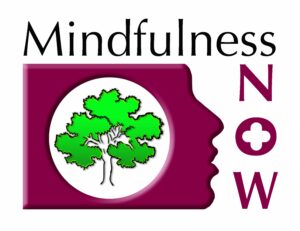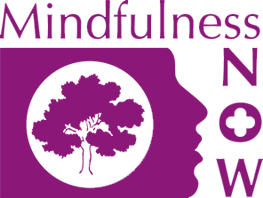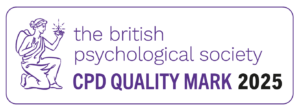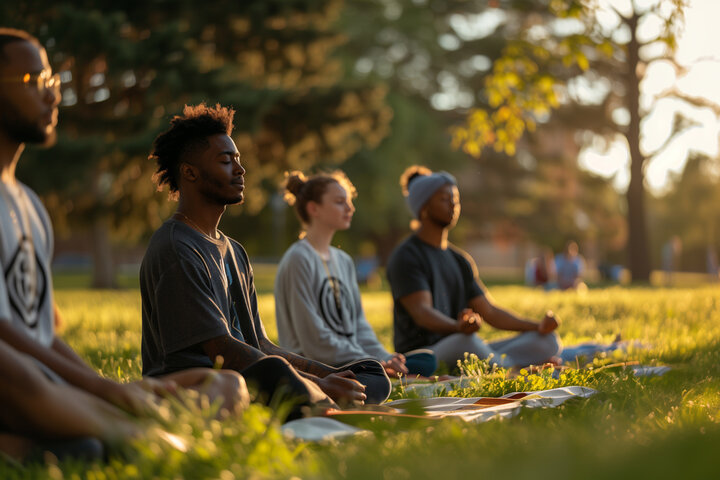What Qualifications Do I Need to Teach Mindfulness?
In an increasingly distracted world, mindfulness has become a powerful and popular tool for supporting mental health, emotional resilience, and overall wellbeing. As interest grows, so too does the need for well-trained, ethical, and compassionate mindfulness teachers. But what qualifications do you actually need to teach mindfulness?
Let’s break it down — from the importance of face-to-face training, to supervision, CPD, accreditation, and the latest research and standards.

Why It Matters: Mindfulness Teaching Is a Responsibility
Mindfulness isn’t just a technique — it’s a way of being. Teaching it effectively requires more than a personal practice or a weekend workshop. Responsible mindfulness teaching involves a solid foundation of personal experience, deep training, and ongoing reflective support.
Mindfulness is increasingly being used in clinical, educational, and community settings — and with vulnerable populations. This makes it crucial that teachers are well-qualified, ethically grounded, and professionally supported.
Core Qualification Path: Face-to-Face Teacher Training
One of the most respected and comprehensive ways to qualify is by completing a structured, face-to-face mindfulness teacher training programme, such as the Mindfulness Now Teacher Training.
Why Face-to-Face Training?
Embodied teaching: You learn directly from experienced teachers who model mindfulness in action.
Group dynamics: Practising with peers mirrors the environments you’ll teach in.
Immediate feedback: Your skills are observed and nurtured in real time.
Community: You build relationships and networks that continue long after the training ends.

Find out more at mindfulnessnow.org.uk
Mindfulness Now is one of the UK’s leading face-to-face training providers, offering in-depth training in both Mindfulness-Based Stress Reduction (MBSR) and Mindfulness-Based Cognitive Therapy (MBCT) approaches. Their programme is accredited by the Mindfulness Teachers Association (MTA), the UK’s primary professional body for mindfulness teachers.
Beyond the Qualification: Ongoing Support is Essential
A reputable training course is just the beginning. To teach mindfulness responsibly and sustainably, you should also commit to:
Supervision
Supervision is a space to reflect on your teaching, get feedback, and grow. It’s especially important when working with complex client needs or in professional settings like healthcare or schools.
Mindfulness Now Supervision
CPD (Continuing Professional Development)
CPD helps you stay current with evolving research, techniques, and ethical standards.
Some examples:
Advanced courses like Compassion-Focused Teacher Training
Workshops on mindful self-compassion (MSC), trauma-sensitive mindfulness, or digital wellbeing.
Belonging to a Professional Body
Membership of the Mindfulness Teachers Association (MTA) connects you with a wider community of practice and sets you apart as a registered, supported, and accountable teacher.
The MTA provides:
A professional register of qualified teachers
CPD opportunities
Ethical guidelines
Peer support and networking
What Do the Experts Say?
The MTA Best Practice Guidelines provide a gold standard framework for training and teaching. They include:
Commitment to personal practice
Minimum recommended hours of teacher training
Ongoing supervision and CPD
Use of evidence-based programmes
Adherence to the ethical code
If you’re considering training, make sure your chosen course meets or exceeds these standards.
Can You Teach Mindfulness Without a Qualification?
Technically, mindfulness teaching in the UK is not regulated — anyone can call themselves a mindfulness teacher. But this makes professional qualifications even more important. Choosing an accredited programme and being part of a register like the MTA protects both you and your students.
Frequently Asked Questions (FAQs)
❓ Can I teach mindfulness if I’ve only done an online course?
Online training can be a ideal way to train to teach mindfulness, but make sure the online training offers live ‘face to face’ classroom style learning and experiential training as is considered essential for skill development and embodied teaching.
❓ Do I need to be a therapist or health professional?
No — mindfulness is taught in many contexts, including education, business, and the community. What’s essential is appropriate training, ethical awareness, and scope of competence.
❓ What is a mindfulness-based programme (MBP)?
These are structured mindfulness based programmes courses like MBSR or MBCT and the Mindfulness Now 8 week programme, designed to build mindfulness skills over 8 weeks. The Mindfulness Now Programme is an accredited MBP that blends these approaches.
Further Reading & Research
Evidence for Mindfulness-Based Interventions – American Psychological Association
The Centre for Mindfulness Research and Practice – Bangor University
Ready to Get Started?
If you’re passionate about sharing mindfulness and want to do it with integrity, skill, and support, explore:
By becoming a qualified, supported mindfulness teacher, you’re not just offering techniques — you’re offering a way of life. Let your teaching be grounded in authenticity, research, and heart.

Additional Resources on Mindfulness and Research
If you’d like to learn more about the science behind mindfulness and its benefits, here are some trusted resources and articles you might find valuable:
🧠 NHS – Mindfulness
https://www.nhs.uk/mental-health/self-help/tips-and-support/mindfulness/
An accessible introduction from the NHS, covering what mindfulness is and how it can help with stress, anxiety, and depression.
📘 The Mindfulness Initiative
https://www.themindfulnessinitiative.org
A policy institute working to bring mindfulness into public life – includes research summaries, policy briefs, and education resources.
📖 Oxford Mindfulness Foundation – Research Hub
https://www.oxfordmindfulness.org/research
Explore cutting-edge mindfulness research, including studies on MBCT and mindfulness in schools, workplaces, and healthcare.
📊 American Mindfulness Research Association (AMRA)
https://goamra.org
A comprehensive database of peer-reviewed mindfulness studies with regular research summaries and scientific updates.
🎓 University of Massachusetts – Center for Mindfulness
https://www.umassmed.edu/cfm
The birthplace of MBSR – includes educational content, research articles, and training opportunities.
🧩 Neuroscience of Mindfulness – Greater Good Science Center (UC Berkeley)
https://greatergood.berkeley.edu/topic/mindfulness/definition
Articles on how mindfulness changes the brain and supports emotional and cognitive health.










